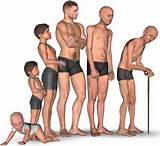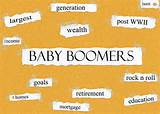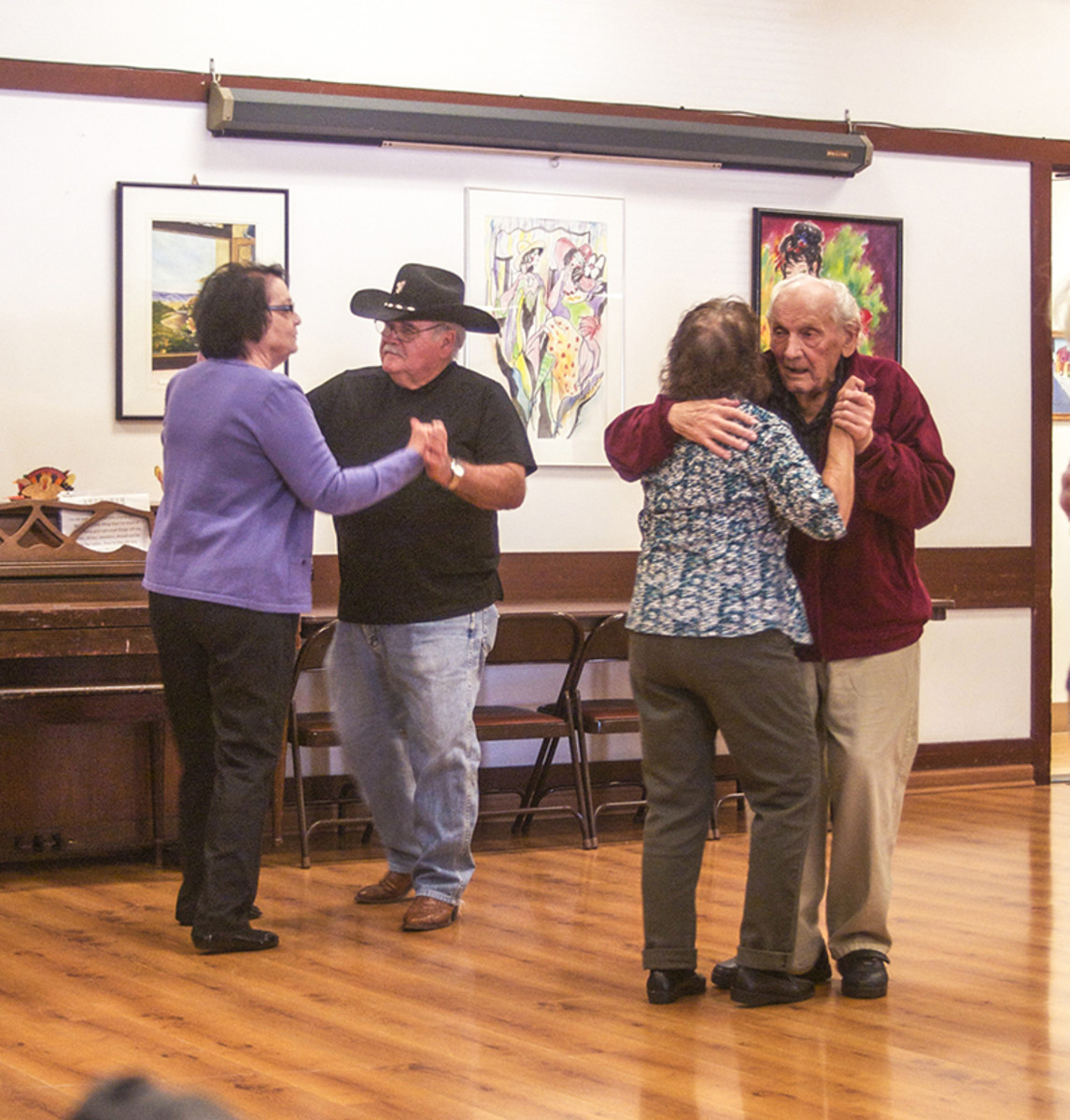Aging and the "Golden Years"


Aging and the Golden Years
We call them “the golden years,” those years beyond age 60, or thereabouts. For some people, those years truly are “golden.” It's a time when the “rat race” of career and competition are over. There is wisdom and peace that comes from years of experience. and a perspective only time can bring.
Many seniors can look back over their lives and say, “It's been a great life, and these are truly the best years of my life! I still have a lot to look forward to.”
Problems of Aging
For many, however, these years are not so golden. As people grow older, they often experience problems such as:
-
emotional losses
-
depression
-
hearing loss
-
memory loss
-
personality changes
-
increased dependency
Emotional Losses
When Daniel lost his wife of 54 years, he grieved, cried, and worked through his grief. He was just at a point where he was getting involved with his old activities and friends again, when suddenly he went into a deep depression. He wouldn't eat, slept most of the day, his weight began to drop, and when he talked at all, he usually talked about dying. His son and daughter became alarmed about his condition and went to a therapy clinic for advice on how to help their father pull out of his life-threatening depression.
“What has been going on in your father's life lately?” The therapist asked. “Have there been any serious losses since your mother's death?” The daughter answered “Well, nothing major. There were only two things that happened around the time he went into his depression, but neither was anywhere near as serious as losing mom.”
“What two things happened in Daniel's life?” asked the therapist. “The Motor Vehicle Department refused to renew his license, but that's no big deal,” said Daniel's son. “After all, dad hardly drove at all anymore, just to the grocery store and church. And a transportation service got him any place he needed to go. And the other thing with the dog.”
“What dog?” “I bought him a puppy after mom died,” said Daniel's daughter. “The puppy got out and was run over by a car, but he couldn't have been too attached to it. He only had the dog a few months. After all, something like losing your drivers license and losing your dog wouldn't make you more depressed than losing your wife after 54 years, would it?”
The fact is, it could. Losses can affect seniors in different and unexpected ways. Some of the losses experienced by seniors include:
-
loss of spouse
-
loss of friends and family members
-
loss of health
-
loss of freedom and physical mobility
-
financial losses
-
loss of dreams, ambitions, and goals
It's easy to see how some of these losses, such as the loss of a mate, can create an enormous emotional hole in the life of an elderly senior. Other losses, such as the loss of a drivers license or the realization a cherished dream will never be fulfilled, are less tangible, but often quite painful. All of these losses, whether tangible or intangible, must be fully and successfully grieved in order to get on with a healthy, satisfied life.
Sometimes, as in Daniel's case, a seniors response to loss will seem confusing and disproportionate. A minor loss may appear to be grieved more intensely than a major loss, such as the loss of a spouse. Many factors go into a person's reaction to a loss and help to determine whether or not that person's response to the loss will be healthy or unhealthy. Those factors include:
Timing of the loss. When losses come bunched together, they can overload a person's ability to respond to them. As in Daniel's case, a couple of minor losses following a major loss may be just enough additional stress to tip a person into a deep, dangerous depression. A person might respond to one loss by saying, “That was a terrible loss, but I'll get through it. I still have a life to lead.” But that same person, by the third or fourth loss, may say, “Life is just too painful. I can't deal with this anymore.” When Daniel lost his driver's license and his pet just a few months after the death of his wife, this cluster of losses became more than he could handle.
Meaning of the loss. The loss of a drivers license may not seem like a major loss, especially in the life of someone who rarely drives anymore. But the loss of that drivers license and cataclysmic had serious emotional implications for Daniel. It was a major life transition to discover he could no longer just get in the car and go wherever you wanted. His freedom was limited. His competence was called into question. The loss, although minor in terms of its practical significance, had enormous emotional and symbolic significance for Daniel. It said, “Your life is over.”
Upsetting life's equilibrium. If a major loss occurs during a time of relative calm and stability in life, it will be painful but probably endurable. But if a major loss occurs at a time when a person is already emotionally off-balance because of financial problems, emotional stresses, family conflicts, and the like, then that loss could be a shattering event that finally topples them off the tight rope.
Circumstances surrounding the loss. If the senior loses a mate suddenly and unexpectedly at a time when the individual seems to have a great deal more living to do, that loss will probably seem more shocking, senseless, and painful than if the loss comes as a “release” after that mate has undergone a long battle against cancer, Alzheimer's disease, or some other chronic, debilitating condition. Also if the person experiences self-blame over the loss, whether or not that blame is valid, the grieving experience will be much more painful and intense.
Here are some ways to help a senior adult to continue making progress toward grief recovery after a major loss:
-
Encourage the grieving person to talk about it.
-
Listen non-judgmentally. Help this person re-experience events and emotions that have been in the background for years.
-
Help the individual to remain connected with a support system such as church, Bible study, grief support groups or classes.
-
Encourage them to maintain healthy routines and functioning: friendships, activities, personal hygiene and spiritual pursuits.
The Grieving Process
Grief is a highly individualized process. No two people experience it at the same rate or in the same way. The stages of grief are only an approximation of the way people generally process grief. The actual progression of those stages will vary from person to person.
If someone close to you is going through the grief process, you may experience anxiety and emotional discomfort, coupled with a desire to hurry your loved one through the process. But a grieving person needs time to work through those feelings. Avoid the temptation to make yourself feel better by telling the grieving person to shut off their emotions. If you suspect your loved one is experiencing depression and despair that go beyond the usual depths of the grief experience, it's important to have that person assessed by a geriatric psychiatrist.
The grief process, popularized by a Swiss psychiatrist, can progress in some unexpected ways in the life of a senior adult. It's important to remember this process normally occurs in response to any major loss from the death of a loved one, loss of one's health, life savings, or impending loss of one's own life.
Depression
The principal warning signs of clinical depression after a loss is a lack of progress in dealing with the loss. A long grieving period, several months to even two or three years, isn't unusual or unhealthy in and of itself. During that period however, you should see some progress in that person's emotional state on a consistent basis. You should see a gradual resumption of relationships with friends, involvement in activities and hobbies, and improvement in mood. If that person remains emotionally paralyzed, withdrawn, and nonfunctional, then they may be sliding into a deep clinical depression.
Other warning signs of clinical depression include sleeping disorders (frequently interrupted sleep, too much sleep, too little sleep, and inability to get to sleep); a long-term loss of appetite; evidence of sadness or anger, feelings lasting longer than three or four months; frequent crying; loss of interest in favorite activities; sitting alone and staring; and chronic lack of attention to grooming and personal hygiene. If you are dealing with a senior showing signs of clinical depression, here are some actions you should take:
-
Encourage the individual to undergo a full medical evaluation. A physician will look for physical problems that contribute to depression, such as depletion or imbalances of brain chemicals, nutrient deficiencies, medication problems, or glandular malfunction. There are many organic problems that can affect one's emotional state, and a geriatric specialist or psychiatrist can help identify and treat those problems.
-
Be alert to any distorted thinking, as evidenced by such statement as, “Everyone would be better off without me,” or “I'm just in the way.” It's important senior adults be assured of their continuing meaning and importance in the family.
-
Be alert to any expressions of suicidal feelings. If a senior says, “I wish I could die,” don't hesitate to discuss those feelings with that person, calmly and honestly. Avoid expressions of shock or judgment; be empathetic and understanding. If the individual appears to have a suicide plan, take positive action. Remove any means of suicide from their reach and don't leave them alone. Immediately contact a therapist or suicide prevention agency.
Hearing Loss
Hearing loss is a significant communication problem for one third of all women over 65, and half of all men over 65. Although most age related hearing problems can be alleviated by a hearing aid, roughly 2/3 of those who need hearing aids neglect or refuse to wear one, in large part because they consider hearing aids to be an embarrassing symbol of “getting old.”
Aging often brings about a condition called presbycusis, a degeneration of the inner ear mechanism. This condition causes decreased sensitivity to high frequencies and a loss of ability to discriminate among distinct sounds of speech. People with this condition can hear sounds, but the sounds they hear are muffled, and distinct, and difficult to understand. Every senior should have a periodic hearing evaluation, and a person who is experiencing problems understanding conversations should be tested by a physician. If a hearing problem is discovered that can be helped by a hearing aid, the doctor will write a prescription for the hearing device required for that particular form of hearing loss.
When senior adults experience hearing loss, there are simple steps that can be taken, that can make communication easier and more pleasant. These steps can be beneficial to family relationships, communication, and the individual's health:
-
If you have a hearing impairment. When having conversations, avoid places where there is a lot of background noise, crowds, TVs, open windows with street noise. Avoid places where noise and echoes interfere with conversations, such a room corners with a lot of time, plaster, or glass. Find a place to sit surrounded by upholstery, drapery, carpet, acoustical tile or places where background noise is absorbed instead of bounced around. If you don't understand what someone says, ask them to repeat it or speak more distinctly and slowly.
-
If you are talking to someone with a hearing impairment. Don't shout, just speak a little louder, a little more clearly and carefully, and in briefer sentences. Even if the hearing impaired person is not a lip reader, it helps if that person can see your lips as you speak, so look them squarely in the face. Show you are interested in their feelings and thoughts. Include that person in your conversation with a slightly elevated voice level and eye contact.
Illness
As the body ages, various systems in the body tend to operate at reduced efficiency. Bones become brittle through loss of calcium. The body becomes more susceptible to viral infection, so it becomes very important to ensure proper nutrition and have annual flu vaccinations. For obvious reasons, seniors are more likely than any other age group to require medical attention and hospitalization. The fear of illness, debilitation, and hospitalization is great among this group. If you have a senior loved one, here are some suggestions for reducing their anxiety over potential illness and making sure they get the best possible care:
-
Help them choose a doctor and hospital understanding of special medical and emotional needs of geriatric patients. Check with friends, your pastor, and healthcare professionals to find doctors and hospitals known for dealing effectively with medical and emotional needs of senior adults.
-
Many seniors tend to be submissive and intimidated in dealing with healthcare issues. They may need you to be assertive on their behalf. Be assertive, but not abrasive. With courtesy and respect, communicate to the hospital staff about their needs.
-
Go with them on Dr. visits. Listen to the doctor's explanations, ask questions the patient might not think to ask, take notes, explain and interpret information, and help the individual sort through the medical options and decisions.
-
Be aware of their spiritual needs during an illness or hospitalization. Contact their church so needs can be shared with prayer partners, Christian friends or pastoral staff members who can arrange to make hospital visits. Pray and read Scripture or Christian books for them.
To a senior adult, physical illness is a tangible reminder of physical mortality. For some, life is a trial of illness, hospital confinement, invasive medical procedures, chronic pain, or living in a wheelchair. Those who are able to deal most effectively with chronic or terminal illness are those who trust in God to ease their pain and exchange their aging bodies for new, purified bodies in eternity.
One doctor told about his mother, who suffered from hip pain in her mid-70s. She demonstrated the attitude aging people need to have in order to face the issue of chronic or terminal pain. “I'm getting ready to lay down this body,” she said. “After all, it's got a lot of mileage on it.” Later she suffered a heart attack and experienced kidney failure. Although doctors told her she could be kept alive indefinitely on dialysis, she opted to forgo heroic measures and let nature have its way. “My body is a vehicle I picked up at birth, and I'll lay it down at death,” she said. Two weeks later she peacefully went home to be with her Lord.



Memory Loss
Upon reaching age 65, the average person has lost about 25% of their original 10 billion brain cells. That is one reason older people usually see some deterioration in remembering, memorizing, focusing, and thinking. Normally, this loss of mental acuity is minor. After all, the average senior adult still has about 7.5 billion fully functioning brain cells!
But with aging, additional factors beyond mere cell loss, may accentuate memory loss. For example, the experiences of aging such as loss, grief, or depression, can alter the balance of important brain chemicals called neurotransmitters. If there is a drop in the level of a neurotransmitter called serotonin, the individual can experience decreased ability to focus and remember. They may also display symptoms of moodiness, depression, and irritability.
Paradoxically, memory processing capacities begin to slow down at just the time they have the most knowledge to process. In fact, an entire lifetime of memories, experience, and learning. Many older people seem to forget facts, grope for words or information, but this doesn't mean they are becoming senile. In the average senior adult, the memories are in fact, still properly stored in the brain, but it takes a little longer for the “central processing unit” of the brain to access those memories. There are essentially three broad categories of memory loss common to senior adults:
-
The normal mild slowdown of memory access most aging adults experience.
-
Treatable, reversible memory impairments resulting from drug reactions, illnesses, nutritional imbalances, injuries, or emotional issues. (Depression, loneliness, and even the fear of forgetfulness can aggravate memory loss).
-
Alzheimer's disease, in which memory loss is irreversible.
Just the mention of Alzheimer's disease is enough to strike dread in the hearts of most people. It's common for people, when they or their loved ones experience one of the first two categories of memory loss above, to assume the worst and believe they are witnessing the first stages of Alzheimer's. It's important at such times to reassure ourselves and others it's perfectly common and normal for seniors to sometimes forget details, a friend's name, or an appointment. Only a small percentage of the population, about 7% of those over age 65, will ever develop Alzheimer's disease or a similar mentally degenerative condition. A little forgetfulness, although it can be one of the signs of early Alzheimer's, is also just a fact of life as we get older.
But although a little forgetfulness may be normal, signs of significant forgetfulness or confusion should not be ignored or simply dismissed as part of old age. Many times, these symptoms are the effects of temporary, treatable disorders, so a person who has such symptoms should always be seen by a physician. Often, one's ability to remember, concentrate, communicate, and enjoy life can be substantially improved with treatment.
Personality changes
One of the most disturbing features of aging is how it often causes people we love to experience changes in personality. People we have looked up to for years as models of generosity, kindness, courage, and faith may suddenly become self-centered, withdrawn, irritable, fearful or bitter. Like memory loss, personality changes are often the result of lost brain cells. As mental functions change, reasoning, concentration, and judgment may be impaired. Behavior may become more extreme, unsociable, and even childish as the inhibitory centers of the brain, those managing our emotions, behavior, and desires, began to function less effectively.
Aging and stress of emotional losses can contribute to chemical imbalances in the brain affecting the personality. For example, when a neurotransmitter called dopamine becomes too active in the brain, a person can experience hallucinations, delusions, and paranoia. Symptoms such as slurred speech, confusion, memory loss, and personality changes are indications a person needs medical evaluation.
Increased dependency
Chad and his wife have a decision to make. Chad's mother has been living independently in her own home ever since Chad's father died nine years ago. But lately it's becoming clear she is not now capable of living alone. Not long ago, she accidentally started a fire in the kitchen while preparing dinner. A neighbor helped put out the fire before it did much damage, but Chad shudders to think what could have happened. And two months earlier, she fell and, according to her Dr., could have easily broken her hip.
Chad is convinced his mother can no longer live alone at home. So the decision Chad now faces is this: Should Chad place his mother in a nursing home or bring her home to live with him and his family? This is a decision many face regarding their senior adult parents. Some of the questions needing to be considered before inviting an aging parent to move them are:
-
Does my parent need more care and attention than I can provide?
-
Would it disrupt my family to have mom or dad move in with us?
-
Is my parent manipulative or controlling?
-
What are my real reasons for wanting to invite mom or dad to live with us?
-
Am I really concerned about what's best for my parent? Or am I feeling guilty?
Experience shows it's rarely wise for senior adult parents to move in with their children. It becomes difficult for the family to maintain good boundaries. Husband and wife find it difficult to exercise discipline or deal with conflict in the presence of their parents. Family systems become disrupted. And a significantly dependent senior needs more intensive attention and caring than most people can supply.
Once your parent has come to live with you, it's very awkward to turn around and say, “Oops, we made a mistake! We've decided you need to live someplace else.” Don't enter into this commitment without a lot of thought and counsel. Taking care of a dependent adult is a big and often stressful full-time job. Research shows people taking care of elderly parents are more likely to experience depression, high blood pressure, ulcers, and other stress-related disorders.
Don't take on this job unless you are sure you're up to it. If you do decide to care for an aging parent at home, it's suggested you join a support group for caregivers of senior adults to help deal with issues and stresses of the job. In most cases it's advised individuals concerned about the welfare of their elderly parents consider some of the following options:
-
A private duty nurse or live-in companion.
-
An assisted living residential facility that provides apartment style independence and privacy along with part-time nursing care.
-
A nursing or convalescent home.
-
At-home care, combined with regular extended weekend or respite care, allowing a brief weekend break.
There are ways to improve the transition process and their quality of life:
-
Involve your parent in all decisions.
-
Communicate to your parent they are not losing a home, just moving to a new address. Reaffirm your love and continued involvement in their life.
-
When your parent moves to the new home, throw a “housewarming” party, with gifts, streamers, and balloons.
-
Help your parents select photos and keepsakes that will make their environment seem more like home.
-
Make a point of taking your parent out every so often for a visit with old friends and relatives, lunch at a restaurant, shopping, or some other enjoyable outing.
Grieving Your Mortality
Arthur is in his early 70s and has just been diagnosed with terminal cancer. He is bitter and depressed. “My life is over,” he moans. “This is the end.”
Bernice is in her late 60s. She has also been diagnosed with inoperable cancer. Ted, her husband, is already grieving, but amazingly, Bernice is smiling. “Don't be sad for me, Ted, I'd like to stay with you a few more years, but I'm going home instead. I know this will be very hard on you, but please let's try to celebrate. When I die, I don't want a funeral. I'd really be pleased if you would give me a 'going home party' instead.”
These are two very different reactions to a universal human experience: death and dying. One of the inevitable aspects of aging is it is a stage of preparation for the inevitable outcome of life, death. The so-called golden years are in fact a time of preparation for the final transition, a time in which to face our mortality. Certainly, we will grieve for our mortal life, which, as we approach the close of life, seems all too short. We will experience the stages of grief: denial, anger, or attempt to bargain with God, followed by depression and sadness. But if we work through our grief, we will come to a place of acceptance and in many cases, celebration. Celebration? Yes, because from a Christian perspective, both death and birth mark the beginning of a new life.
There was a time, not long ago, when people had a clearer sense of death. It was a gateway to a new beginning. Decades ago, when most people died at home with their families around them rather than in a hospital, entire families, could witness death and see with their own eyes how a dying person felt and responded at the very brink of death. They could see how death so often came, not as a “last gasp” struggle, but as a release, as a voluntary letting go of life. Some people, as they slipped in and out of consciousness in the last hours of their life, have been known to question whether they are still on earth or in heaven. They are so eager to make the transition from this life to the next they become annoyed they haven't died yet!
Not everyone lets go of life so easily and gently, of course. Some, as they die, rip the sheets or latch onto the people around them, struggling to stay in this life to the last moment. What makes the difference between those who are ready and those who seemingly have to be pried out of their mortal bodies at the moment of their death?
The difference lies in how people view life-and-death. Those who view death as an end of everything good and meaningful will fight until their last breath. Those who view death as a beginning will welcome death. Those who view death as something that invalidates life will view death with dread. Those who view death as that which completes this life will have no fear of it.
If you are advanced in years, this is the time to prepare yourself for that final transition, not in a morbid or depressed way, but with a goal of successfully, joyfully completing your life. Whether your health is declining or holding strong, now is the time to make the positive decisions that will transform the close of your life into a celebration of a life well lived. Now is the time to:
-
Put your legal affairs in order. Over a third of all Americans die without a will. If you love the ones you leave behind, be sure to have an up to date will prepared by an attorney. If you are leaving real property, such as a house, do not leave it to a number of heirs with undivided interests. For example, four children each with 25% ownership. Such arrangements could create family squabbles down the road when one wants to sell property and the others don't. Arrange the will to have the property sold and proceeds divided.
-
Put your emotional affairs in order. If you are afraid of death, you need to ask yourself why. Therapists frequently find people haunted by a strong apprehension about death, have an underlying fear about life and living. Perhaps you are afraid of not having enough money to carry you through your retirement years. Perhaps you are anxious about an unyielding relationship. Or you may have unresolved emotions about some traumatic event in your past. It's advisable to to work through your emotional issues, preferably with a Christian counselor or therapist. In many cases, people who resolve their emotional misgivings about life are able at the same time to resolve their apprehension about death.
-
Put your relational affairs in order. Finish unfinished business. Where possible, mend broken relationships. Where necessary, seek and offer forgiveness.
-
Put your funeral affairs in order. Discuss with your spouse, or whoever is responsible for carrying out your wishes, how you would like your funeral to be. Listen to your spouse's feelings on the subject. Put the plans in writing and keep them in a safe place where they can be easily located in the event of your death. (Do not put this or any other important document related to your death in a bank safe deposit box, since these boxes are often sealed upon an individual's death. Leave it in the care of an attorney, trusted friend, or family member). Facing the fact a funeral will be held in your honor is a healthy step toward grieving and releasing your mortality. Some people may say, “How morbid!” But there is nothing morbid about facing the inevitable. Successfully grieving mortality frees you to accept God's ultimate plan and enables you to live the years ahead fully, joyfully, and with new freedom.
-
Put your spiritual affairs in order. What is the ultimate end of life? What are we here for? What was it all about? The non-Christian possesses no hope. The Christian? All through their Christian experience, this person has been talking about faith in Christ. Now that faith is put to the test. The time for spiritual surrender has arrived. There are no more props or distractions in life. All the things that obscures the reality of eternity from our view have been stripped away. The core reality of life and death have been laid bare. There is no earthly person, parent, or spiritual guide, who can shield you from the inevitability of death.





